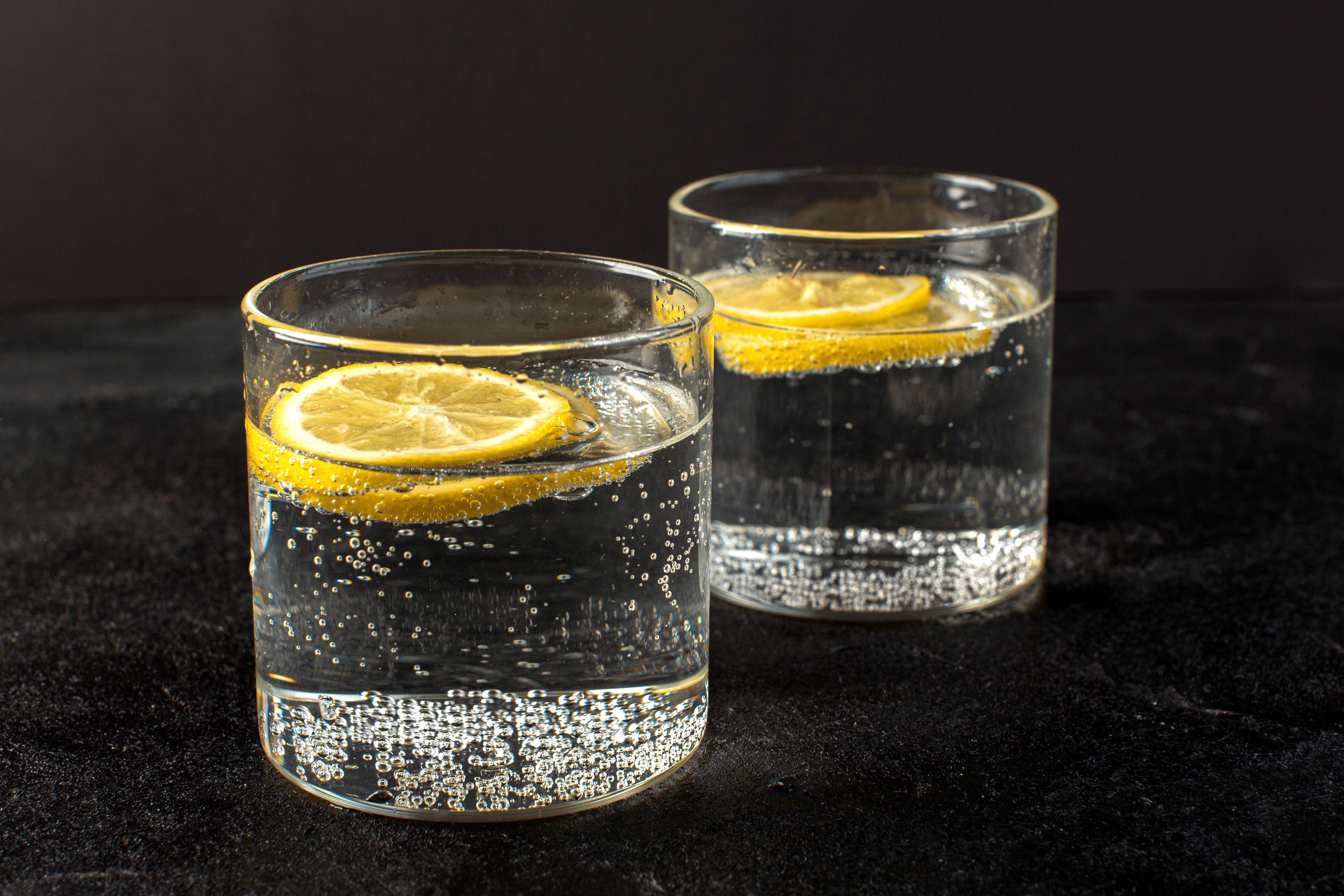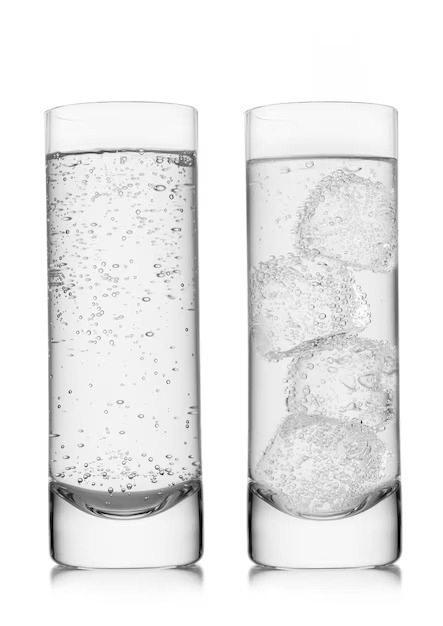Sparkling Water Vs Still Water
Water is essential to life. It makes up about 60% of the human body and plays a vital role in nearly every bodily function. From regulating body temperature to flushing out toxins and keeping your skin healthy, staying hydrated is one of the best things you can do for your overall well-being.
But when it comes to choosing the right type of water, the decision isn’t always clear-cut. Two of the most popular types of water are sparkling water and still water, and each has its own set of benefits and drawbacks.
So, which is better for you? In this article, we will dive deep into the Sparkling Water Vs Still Water debate and help you understand the pros, cons, and health implications of both options.
Whether you’re an athlete, a health-conscious individual, or simply curious about your hydration habits, this comprehensive guide will offer the insights you need.

What is Sparkling Water?
Sparkling water, also known as carbonated water, is water that has been infused with carbon dioxide gas under pressure. This gives it a fizzy, bubbly texture. There are several types of sparkling water, including:
- Club Soda: Contains added minerals such as sodium bicarbonate or potassium sulfate.
- Seltzer Water: Pure carbonated water without added minerals.
- Tonic Water: Contains added sweeteners and flavors, including quinine.
- Naturally Sparkling Mineral Water: Comes from a natural spring and contains naturally occurring minerals and carbonation.
What is Still Water?
Still water is simply water that has not been carbonated. It is the most common and traditional form of drinking water. Still water can be:
- Tap Water: Comes from a municipal source and may be treated with chlorine and fluoride.
- Filtered Water: Tap water that has been passed through filters to remove impurities.
- Spring Water: Naturally sourced from underground springs.
- Distilled Water: Water that has been boiled and re-condensed to remove impurities.
Nutritional Comparison: Sparkling vs Still
Both sparkling and still water are calorie-free and do not contain any fats, sugars, or proteins. However, there are some subtle differences:
- Minerals: Sparkling mineral water often contains calcium, magnesium, and potassium, depending on the source. Still water may lack these unless they are added artificially.
- Sodium Content: Some sparkling waters, especially club soda, contain sodium, which may not be ideal for people on low-sodium diets.
Hydration Effectiveness
A common misconception is that sparkling water is less hydrating than still water. However, research shows that both types of water hydrate the body effectively. The carbon dioxide bubbles in sparkling water might give a different mouthfeel, but they don’t significantly impact hydration levels.
That said, some people may drink less sparkling water due to its fizzy sensation, which could indirectly affect overall hydration.
Dental Health Considerations
One of the biggest concerns regarding sparkling water is its potential impact on dental health. Carbonation makes water slightly more acidic, and acidity can erode tooth enamel over time. However, the acidity of sparkling water is much lower than that of sugary soft drinks and fruit juices.
Tips to Protect Your Teeth
- Drink sparkling water with meals to help neutralize acids.
- Avoid brushing your teeth immediately after drinking sparkling water.
- Use a straw to reduce contact with your teeth.
Digestive Health
Sparkling water may actually offer some digestive benefits. Studies suggest that it can improve swallowing ability, increase feelings of fullness, and reduce symptoms of indigestion.
People suffering from constipation have also reported relief when consuming carbonated water compared to still water.
However, sparkling water can cause bloating and gas in some individuals, especially those with irritable bowel syndrome (IBS).
Bone Health
There has been some speculation that sparkling water, particularly cola-based drinks, could negatively impact bone density due to their phosphoric acid content. However, plain sparkling water does not contain phosphoric acid and has not been shown to harm bone health.
In fact, some mineral-rich sparkling waters may contribute beneficially to bone health due to their calcium and magnesium content.
Skin Health
Hydration is key to healthy skin, and both sparkling and still water can help. While there’s no evidence to suggest that one type of water is better for skin hydration, the added minerals in some sparkling waters might provide additional benefits.
However, most of your skin benefits will come from overall hydration rather than the type of water you consume.
Athletic Performance and Recovery
For athletes and active individuals, proper hydration is crucial. Still water is usually recommended for immediate hydration needs, especially during and after workouts. However, sparkling water can be a good option post-workout for those who enjoy it, as long as it doesn’t cause bloating or discomfort.
Electrolyte Content
Some sparkling mineral waters contain electrolytes, which can aid in recovery and replenish lost minerals. Still water can be combined with electrolyte tablets or sports drinks for similar benefits.
Environmental Impact
From an environmental perspective, both still and sparkling waters have their pros and cons. Bottled water, whether still or sparkling, contributes to plastic waste and carbon emissions from transportation.
More Sustainable Options
- Use reusable bottles.
- Invest in a home carbonation system like SodaStream.
- Opt for tap or filtered water when possible.
Taste and Satiety
Taste is subjective, but many people prefer the fizzy sensation of sparkling water, which can make drinking water more enjoyable. This is particularly useful for those who struggle to drink enough plain water.
Sparkling water can also help with satiety. The carbonation can create a sense of fullness, which may aid in appetite control.
Cost and Accessibility
Still water, particularly tap water, is the most cost-effective and accessible option. Sparkling water tends to be more expensive, especially if consumed regularly.
Home carbonation systems can reduce long-term costs for sparkling water fans, though they require an initial investment.
When to Choose Sparkling Water
- If you enjoy the fizzy texture.
- If you’re trying to cut back on sugary sodas.
- If you need help feeling full.
- If you want a flavorful option without added calories.
When to Choose Still Water
- If you have a sensitive stomach.
- If you need quick hydration.
- If you’re on a low-sodium diet.
- If you’re looking for the most eco-friendly and economical option.

Final Verdict
So, is sparkling water better than still water? The answer depends on your personal preferences, health needs, and lifestyle. Both options offer excellent hydration and have unique benefits.
If you enjoy the fizz and it doesn’t cause digestive issues, sparkling water can be a fun and healthy alternative to sodas. Still water remains the gold standard for hydration due to its simplicity, accessibility, and affordability.
The best approach is to include a mix of both in your hydration routine, depending on your needs and situation.
References
- Mayo Clinic – Carbonated Water: Is it bad for you?
https://www.mayoclinic.org - American Dental Association – Effects of Sparkling Water on Teeth
https://www.ada.org - Harvard Health Publishing – Sparkling water and hydration
https://www.health.harvard.edu - National Institutes of Health (NIH) – Hydration and Health
https://www.ncbi.nlm.nih.gov/pmc/articles/PMC2908954 - International Journal of Food Sciences and Nutrition – Sparkling water and digestion
https://www.tandfonline.com